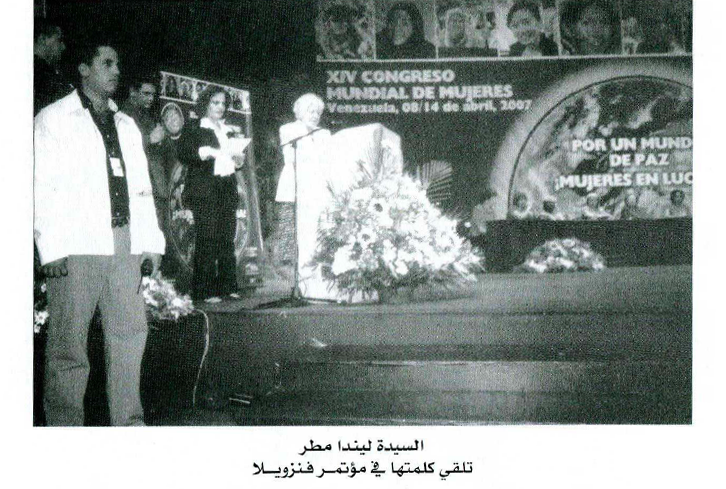Third Cycle of Feminism
Following the fourth World Conference on Women in Beijing, a third generation of feminists emerged in Lebanon. This generation helped in formulating new terms, such as “gender-based violence,” “full citizenship,” and “positive discrimination,” and pushed for legal and perceptual gender mainstreaming, as well as for the inclusion of women’s rights into human rights. This activism culminated in the signing of the Convention on the Elimination of All Forms of Discrimination against Women (CEDAW) in 1997, and binding Lebanon to achieve the conference’s goals by integrating them in domestic legal codes(1)Beyond Reform and Development, “Patriarchy and Sectarianism Gendered Trap: Baseline of Women in Politics – the Case of Lebanon,” 2017, p. 22, available at: https://www.beyondrd.com/assets/publications/Patriarchy%20and%20Sectarianism%20-%20A%20Gendered%20Trap%20-%20Part%20I%20-%20BRD.pdf (last accessed 28 December 2017). . Dr. Fahima Charafeddine, President of the National Committee for the Follow-up of Women’s Issues, considered the Beijing conference to be a turning point for women’s movements on both a local and global level. She recounts how it impacted the movement, saying:
“It wasn’t until Beijing that the women’s movement developed its strategies. The reader of the history of the women’s movement often conflates women’s organisations with the whole movement. It is true that women’s organisations have contributed greatly to the women’s movement, but they are not the women’s movement. After Beijing, the vision for the women’s movement was reconsidered and reshaped; it is now more about the strategic goals. The visions of women’s organisations became more focused on changing women’s status, and not merely serving them.”(2)Interview by Lebanon Support with Fahima Charafeddine, the President of the National Committee for the Follow up of Women’s Issues, Beirut, 6 March 2018.


